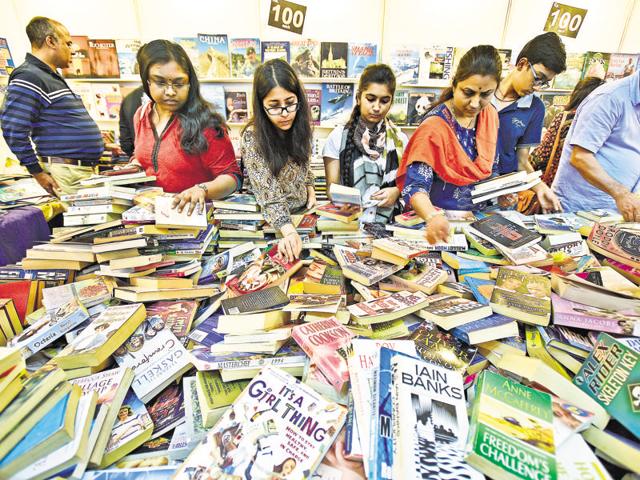There is no book so bad…. that it does not have something good in it – Miguel de Cervantes Saavedra, Spanish language author
Known as the greatest author of Spain, Miguel Cervantes’ death anniversary April 23 is observed by UNESCO as World Book Day to promote book reading, publishing and copyright. The day, which also marks the death anniversary of the great English playwright and poet William Shakespeare and the birth or death anniversaries of other prominent authors such as Vladimir Nabokov, also recognises the contributions of authors who have furthered the social and cultural progress of humanity.
It has been said that a book is man’s best friend. However, in recent years, there has been a steady decline in the book reading habit, especially among the youth. It is widely agreed that the advent of electronic media, Internet and use of android phones has killed the reading habit among the kids too.
“Today’s children live in a world that uses technology in every aspect of life. For them, books are just not paperbacks or hardbound. Children today use e-books and e-learning methods,” says Manmayee Rath, principal of Gouri Shankar Public School, Boudh.
“We cannot halt this ongoing trend of digitisation. What we can certainly do is to make books an interesting alternative medium that will generate interest and have a strong role in the learning process. I feel we need to make the children aware about the whole process of making books, right from designing, content writing, publishing and marketing. The involvement will create interest and could give a new lease of life to printed books,” she suggests.
However, she was optimistic of the future and said books are and will always remain an integral part of the learning process.
In fact, digitisation is encouraging the reading habit too; it is just that people are now reading e-books. This apart, no Internet or smart phone can keep a loyal book reader away from his books.
Subhashree Subhasmita Mishra, a young author and homemaker, is a case in point. She is addicted to book reading. These days, she reads books sometimes till 3 am. The spell of reading is such that she sometimes takes her books to the washroom, she says.
“I am not sure about drug addiction, but I believe that the spell of book reading is stronger than that. I have been addicted to reading from my school days. I took just 4 hrs. and 27 minutes to complete Pratibha Ray’s 400-page Yagnaseni after I passed Class IX. I read everything that I could put my hands on. I don’t let go off even a small piece of old newspaper if I find a short story in it even if it is brought from a ration store as a wrapper.”
Describing a bizarre incident, she said, “Once I didn’t hear my small daughter crying for a long time as I was totally absorbed in reading. A neighbour knocked at my door to alert me that she was crying. Following that, I vowed not to read books during the day. So, I started reading books till very late in the night and took ill. My husband became quite upset about my reading obsession.”
Books have changed the life of many people. Narendra Narayan Dash is one of them. He is a Bhubaneswar-based writer, critic and translator who has authored a book on the life and works of Greek poet Sappho and translated the poems of popular Russian poets among others.
“Ernest Hemingway’s Old Man and the Sea was a turning point in my life as I realised the magical power of books in refining, remoulding and, at times, healing bruised lives. As I took more interest in serious literature, the world opened up before me, layer after layer; I discovered classics of world literature in languages other than English. The more I read such literature, the more I was inspired to plunge into the world of letters irrespective of geographical or linguistic barriers. The words of the famous Spanish novelist Carlos Ruiz Zafón – ‘Every book has a soul, the soul of the person who wrote it and the soul of those who read it and dream about it’ – very often inspires me,” said Narendra.
College student Sunita Moharana does not think that the reading habit is dying out. “There is concern that the widespread use of Internet and mobile has diminished the popularity of books,” she says. “But I don’t agree with this popular perception. On the issue of kids getting attracted to animation films and the like, I would say it depends on the seniors. They should inculcate the book reading habit in children. Whatever the medium, kids are always attracted towards stories. They watch cartoons, but these are just the moving images of what the kids earlier used to see in comic books. This apart, due to Internet we get books at low cost online. Digitisation has helped the readers as well as publishers.”
BIJAY MANDAL, OP
